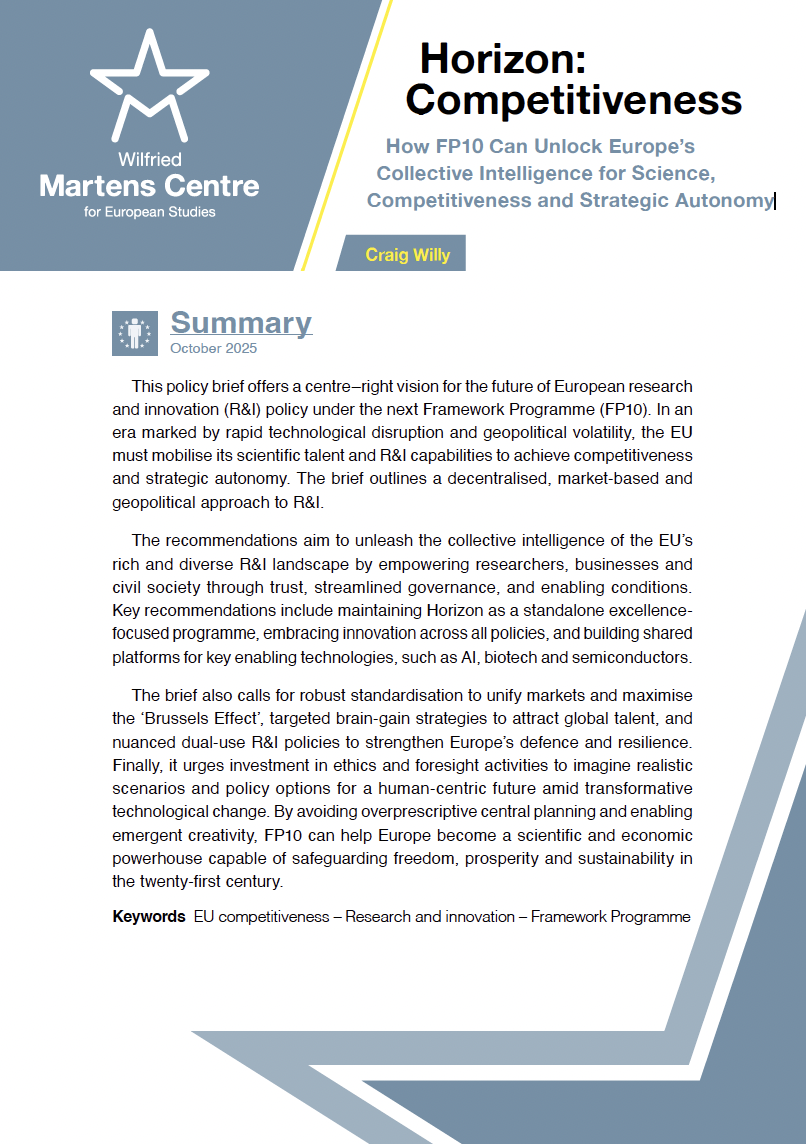Related publications
-

Other
Party Membership in Contemporary Europe
-

Other
A reform agenda for the single market
-

Other
Sino-Russian Economic Relations: Dispelling the “No Limits” Partnership Myth
-

Collaborative
Navigating Multipolarity: Southeast Europe in the EU’s China Strategy
-

Other
The EPP’s Way to Number 1
-

Other
Working Migrants Valued for Their Economic Contribution
-

Other
Strategic Policy Recommendations for the European People’s Party
-

Policy Briefs
Horizon: Competitiveness – How FP10 Can Unlock Europe’s Collective Intelligence for Science, Competitiveness and Strategic Autonomy















